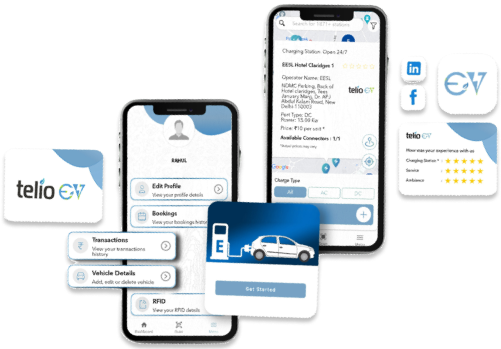Enhancing Electric Vehicle Charging with Advanced Management Software

The rapid adoption of electric vehicles (EVs) has actually demanded the advancement of effective and easy to use charging solutions. Central to this development are Electric Vehicle Charging Management Software (EV CMS) and EV Charging Apps, which improve the charging process for both operators and users.
Understanding EV Charging Management Software
EV Charging Management Software functions as an extensive platform that enables Charge Point Operators (CPOs) and other stakeholders to monitor, manage, and optimize EV charging stations. Key functionalities include real-time tracking of charging stations, user authentication, payment processing, and energy management. By incorporating these functions, the software guarantees efficient operation and boosts the user experience.
Key Features of EV Charging Management Software
1. Real-Time Monitoring and Control: Operators can manage the status of charging stations, track energy consumption, and address issues without delay.
2. User Authentication and Access Control: The software manages user gain access to, guaranteeing that only authorized individuals can utilize the charging centers.
3. Payment Processing: It helps with seamless deals, supporting different payment methods to cater to varied user preferences.
4. Energy Management: By optimizing energy distribution, the software lowers functional costs and EV Charging Management Software supports grid stability.
5. Reporting and Analytics: Comprehensive information analysis help in informed decision-making and tactical planning for network expansion.
The Role of EV Charging Apps
EV Charging Apps are created to offer EV owners with convenient access to charging facilities. These applications offer functions such as locating nearby charging stations, real-time schedule updates, navigation support, and remote tracking of charging sessions. By improving accessibility and user engagement, these apps play a vital role in promoting the adoption of electric vehicles.
Integration with Open Charge Point Interface (OCPI)
The Open Charge Point Interface (OCPI) is a standardized procedure that facilitates interoperability in between different EV charging networks. Combination with OCPI allows for smooth roaming, enabling users to gain access to multiple charging networks with a single account. This interoperability improves user convenience and expands the availability of charging infrastructure.
Advantages of Implementing Advanced Charging Solutions
- Enhanced User Experience: User-friendly interfaces and trusted services increase client fulfillment and loyalty.
- Operational Efficiency: Automation and real-time tracking reduce manual intervention, reducing functional costs.
- Scalability: Advanced software solutions support the growth of charging networks to meet growing demand.
- Revenue Generation: Flexible rates models and efficient payment processing open new profits streams for operators.
Conclusion
The combination of EV Charging Management Software and user-centric EV Charging Apps is pivotal beforehand the electric vehicle ecosystem. These technologies not just streamline operations for service providers but likewise significantly improve the charging experience for users. As the EV market continues to grow, the adoption of such innovative solutions will be instrumental in meeting the increasing need for effective and accessible charging infrastructure.